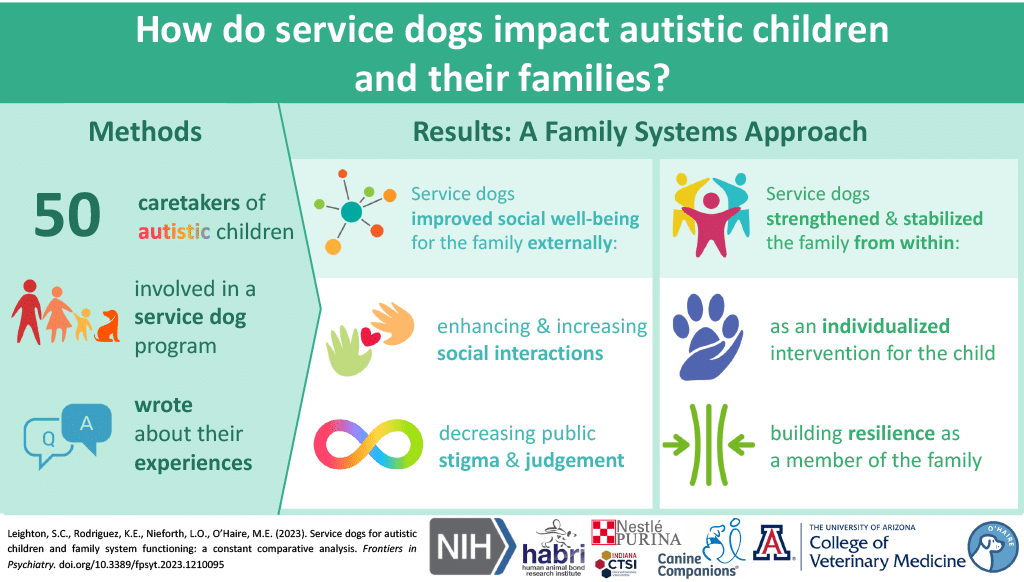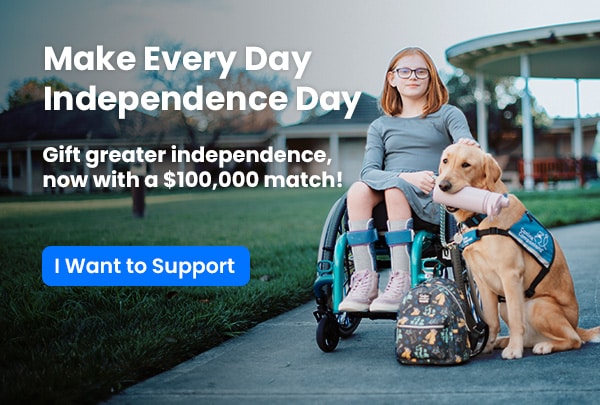Canine Companions is proud to be on the forefront of research evaluating the efficacy and impact of service dog placements. Beginning in 2019, we partnered with researchers from the OHAIRE Group, currently at the University of Arizona College of Veterinary Medicine, on an innovative study to understand the impact of service dog placements for children with autism and their families.
The results are promising – the study found that service dog placements enhanced and increased social connections for the family as a whole, and decreased experiences of judgement and stigma. Within the family unit, the service dog acted as a unique and individualized intervention for the child with autism.
This collaborative new study with Dr. Maggie O’Haire’s lab was published in Frontiers of Psychiatry. The study explored experiences reported by caretakers of children with autism, including those with a service dog and those on a waitlist to receive a service dog. This qualitative approach looks at service dog placements within the context of a whole family unit and helps provide a richer understanding of the broader impact of a service dog, beyond the child with autism.
Findings show that the service dog has a supportive influence on the child and also the entire family. Service dogs are seen as family members, and help increase the family’s resilience by improving interactions, improving emotional well-being, and as a source of joy. Overall, service dog placements appear to impact and foster resilience within the entire family and looking at the whole family reveals the profound positive impact of service dogs.
Canine Companions proudly places service dogs with children with autism as part of a three-party team: the child, the service dog, and the facilitator who handles the service dog. Through our research collaboration with the University of Arizona, Canine Companions is taking part in novel research seeking a deeper understanding of the nature of this unique three-party, rather than the more typical two-party, service dog placement. This paper is the first in a series on our research focused on how service dog placements help not only the children with autism they serve, but also their families – stay tuned for more!
Here’s a link to the published study.*
Note from the study authors: The research publication uses “identity-first” language (i.e., autistic child), in line with the publisher’s guidelines and the preference of some individuals in the autistic community. However, we recognize that others within the autistic and disability communities prefer “person-first” language (i.e., child with autism). More information and resources can be found at the Disability Language Style Guide*.
*Please be aware that by clicking this link you are visiting sites that are not managed by Canine Companions. Website security, accessibility and privacy policies may be different than Canine Companions policies. Please read their policies closely.


